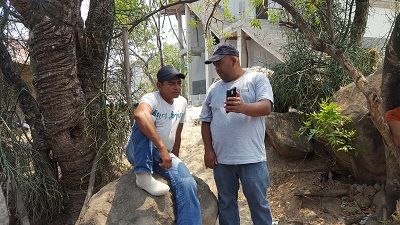- Community Home
- >
- Company
- >
- Advancing Life & Work
- >
- Using the power of technology to improve lives
Categories
Company
Local Language
Forums
Discussions
Forums
- Data Protection and Retention
- Entry Storage Systems
- Legacy
- Midrange and Enterprise Storage
- Storage Networking
- HPE Nimble Storage
Discussions
Forums
Discussions
Discussions
Discussions
Forums
Discussions
Discussion Boards
Discussion Boards
Discussion Boards
Discussion Boards
- BladeSystem Infrastructure and Application Solutions
- Appliance Servers
- Alpha Servers
- BackOffice Products
- Internet Products
- HPE 9000 and HPE e3000 Servers
- Networking
- Netservers
- Secure OS Software for Linux
- Server Management (Insight Manager 7)
- Windows Server 2003
- Operating System - Tru64 Unix
- ProLiant Deployment and Provisioning
- Linux-Based Community / Regional
- Microsoft System Center Integration
Discussion Boards
Discussion Boards
Discussion Boards
Discussion Boards
Discussion Boards
Discussion Boards
Discussion Boards
Discussion Boards
Discussion Boards
Discussion Boards
Discussion Boards
Discussion Boards
Discussion Boards
Discussion Boards
Discussion Boards
Discussion Boards
Discussion Boards
Discussion Boards
Discussion Boards
Discussion Boards
Community
Resources
Forums
Blogs
- Subscribe to RSS Feed
- Mark as New
- Mark as Read
- Bookmark
- Receive email notifications
- Printer Friendly Page
- Report Inappropriate Content
Using the power of technology to improve lives
From helping farmers, to protecting newborns, to ensuring clean drink water and enabling civic engagment—these four Living Progress Challenge winners all share one thing in common: using the power of technology to solve tough societal problems. In part two of a six-part series on the Living Progress Challenge proposal phase winners, blogger Christopher Wellise shares four winning ideas and the tough challenges they are working to fix.
www.hpe.com/livingprogresschallenge
Part two of a six-part series

These are just four of the vital issues being addressed by winners of the proposal phase of the Living Progress Challenge. Over the next several weeks, I’ll be sharing a deeper look at each top proposal phase winners that are now progressing through the design and prototype phase of the Challenge. Read on to learn more about four of these innovative concepts.
AgriUp - Foursquare for Farmers
Four hundred million small-hold farmers around the world struggle to grow enough food to sustain their famililies, let alone grow a surplus that they can sell. One of the many ways the UN World Food Programme is addressing this critical issue is through AgriUp - Foursquare for Farmers, an initiative developed through their Accelerator Innovator.
To be pilotted in Guatemala and scaled-up to other countries in Latin America and beyond, AgriUp is a user-friendly, low-bandwidth smartphone app/website that aims to provide farmers with location-specific information including weather alerts, agricultural advice and nutrition tips.
“There is a risk of heavy rain in the long-term weather forecast for your location. We suggest that you begin to harvest in the next three days.” Think of the difference a practical weather alert like this could mean to a struggling farmer. Actionable tips about agriculture could ensure they have access to modern techniques instead of relying on traditional methods; information about prices could guarantee fair market conditions.
By connecting them to critical information through the power of technology, AgriUp could help farmers to improve their harvests, support their families, and go on to grow their businesses and local economies.
BirthTrac
Millions of people around the world have almost no contact with a formal health system and according to UNICEF, the births of nearly 230 million children under the age of five have never been officially registered. Yet continued engagement with a formal health system throughout pregnancy, birth and the first nine months of life for an infant can dramatically reduce maternal and infant mortality rates.
Submitted by VaxTrac, BirthTrac is a clinic-based tool running on Android devices that will collect basic information and monitor women throughout their pregnancy and delivery. By registering newborns upon delivery BirthTrac can create a national birth registry that will allow children to be seamlessly integrated into early childhood services such as immunization.
Using a VaxTrac tablet PC loaded with the BirthTrac app, pregnancies can be registered and births can be recorded in near real-time. VaxTrac can then push regular SMS reminders directly to new mothers, notifying them when their children are due for vaccinations. As hard-to-reach pregnant women and newborns are registered through BirthTrac into formal healthcare systems, a wealth of information will become available, increasing the ability to monitor maternal issues and provide much-needed care.
Civic CrowdAnalytics
To combat democratic recession, including decrease in voting turnouts around the world, governments are increasingly applying open government practices such as crowdsourcing to engage citizens, making it possible for people to participate in the political process in many new ways.
But paradoxically, this also creates issues. The lack of data processing tools for crowdsourced citizens’ ideas can lead to enormous amounts of data overwhelming civic servants and leaving their valuable input unused.
By using HPE big data analysis tools, Civic CrowdAnalytics, a concept submitted by a team of researchers at Stanford University, will automate the analysis and synthesis of crowdsourced civic input. Citizen’s input will be used more efficiently, ensuring that every citizen has an equal opportunity to have their voices heard. This is a valuable step towards securing a more participatory, inclusive and transparent democratic society.
Data to Drops
Millions of people around the world rely on public water access points such as pumps and taps. But too often these fail due to breakdowns, vandalism or water scarcity. The result? People resort to using dirty water, travel long distances to find new water sources, or pay exorbitant amounts of money to access water.
While improving the sustainability of public water points is a critical for governments, they often have limited visibility into the root causes behind their failure. Data to Drops, submitted by Global Water Challenge, is a software solution that will enhance the Water Point Data Exchange, a tool that analyzes the causes of water point breakdowns.
The solution will better enable governments and aid agencies to explore underlying issues and potential solutions in more depth, and turn existing data into actionable information. Richer data will enable improved research and policies to keep water flowing and communities healthy.
More to come
These are just four of the inspired, innovative proposals we received, all focused on using the power of technology to improve lives. Stay tuned to this six-part blog to learn more about all our proposal phase winners.
Read part one of the series.
Follow Living Progress on Twitter for updates on the Living Progress Challenge.
- Back to Blog
- Newer Article
- Older Article
- MandyLott on: HPE Learning Partners share how to make the most o...
- thepersonalhelp on: Bridging the Gap Between Academia and Industry
- Karyl Miller on: How certifications are pushing women in tech ahead...
- Drew Lietzow on: IDPD 2021 - HPE Celebrates International Day of Pe...
- JillSweeneyTech on: HPE Tech Talk Podcast - New GreenLake Lighthouse: ...
- Fahima on: HPE Discover 2021: The Hybrid Cloud sessions you d...
- Punit Chandra D on: HPE Codewars, India is back and it is virtual
- JillSweeneyTech on: An experiment in Leadership – Planning to restart ...
- JillSweeneyTech on: HPE Tech Talk Podcast - Growing Up in Tech, Ep.13
- Kannan Annaswamy on: HPE Accelerating Impact positively benefits 360 mi...

